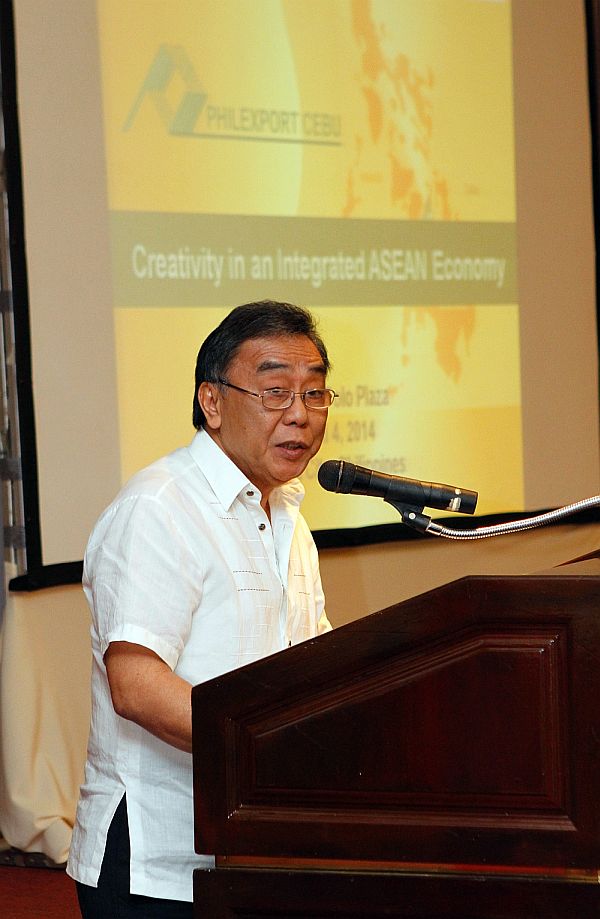
ESCALONA
PROPOSED TAX REFORM PROGRAM
Can business leaders in the export and the information technology-business process management (IT-BPM) industries prevent the Train (Tax Reform for Acceleration and Inclusion) bill passed by the House of Representatives from removing their tax perks?
Local business leaders said they believe that they still have time to appeal to the lawmakers to amend the bill since this will still pass through the Senate and the Bicameral sessions.
The Train Bill or House Bill 5636, which was passed in the House of Representatives last May, is the first package under the government’s comprehensive tax reform program, a move aimed at lowering personal income taxes while expanding the base of value-added tax (VAT) amid new or higher taxes on consumption.
“It is too premature to react because only the House version was approved. It is still going to the Senate, then to the Bicam for the final version,” Federico Escalona, executive director of the Philippine Exporters Confederation, Inc. (Philexport) in Cebu, told Cebu Daily News.
P250B loss
In a recent Inquirer report, Philippine Economic Zone Authority (Peza) Director General Charito Plaza said as much as P250 billion worth of domestic supply purchases could be lost each year if the government insists on removing the VAT exemption currently granted to certain local purchases.
Plaza said Peza-accredited locators make an annual purchase of local supplies worth P250 billion, a gain made possible by the VAT exemption granted to domestic suppliers of export-oriented firms under the current Tax Code.
But should the package be passed as is, the perk would soon be removed.
“PEZA still has time to act and propose amendments,” Escalona said.
Bad for export sector
However, he also admitted that the measure will be bad for the export industry if the House version if no amendments are made.
“If indirect exporters are forced to charge direct exporters 12 percent VAT, then our goods will cost higher, because the final consumer abroad will have to shoulder it somehow,” he explained.
Escalona said this will make Philippine-made goods more expensive or non-competitive, or export companies — if they absorb the tax — will be pressured in their bottom line results.
IT-BPM’s reaction
Aside from the export industry, the Information Technology-Business Process Management sector also publicly voiced out its opposition to the tax reform package.
The Information Technology and Business Process Association of the Philippines (IBPAP), the biggest industry organization in the country, previously called for the retention of fiscal incentives that would otherwise be removed under the first package of the government’s tax reform program.
Retain exemption
The group wanted to keep the exemption of certain sales and imports from the VAT, the removal of which would make the Philippine IT-BPM industry less competitive compared to other countries.
Without the exemption, transactions would now be subject to a VAT equivalent to 12-percent of gross receipts.
IBPAP said this would make the country “as much less cost competitive compared to India (at approximately 20- to 30-percent cost disadvantage) or other outsourcing destinations such as China, Vietnam, Thailand and others.”
The group also pointed out that the move could derail the industry from hitting its revenue target of $38.9 billion in 2022.
Furthermore, it was seen to impact the industry’s competitiveness in the global market as well as the growth trajectories outlined in Roadmap 2022.
“More importantly, this will also impact job creation targets, including sectors that benefit from the 3.2 multiplier effect of the IT-BPM industry,” IBPAP said in its position paper.
The industry targets to post $38.9 billion in revenue in 2022 after hitting $22.9 billion in 2016 in its Roadmap 2022.
More considerate
As the measure is set to be deliberate in the Senate, a local IT-BPM leader said he hopes the lawmaking body can be more considerate.
“We are still hoping that the tax incentives will be retained outside Metro Manila,” said Wilfredo Sa-a Jr., managing director of the Cebu IT/BPM Organization (CIB.O).
Sa-a said this would encourage investors to locate in the countryside and bring more inclusive development and opportunities in less-developed areas.
He earlier said that the removal of incentives will be a setback to the IT-BPM industry if the focus is still cost arbitrage.
However, he said this can also be an opportunity to push for amendments that would bring development to the provinces.